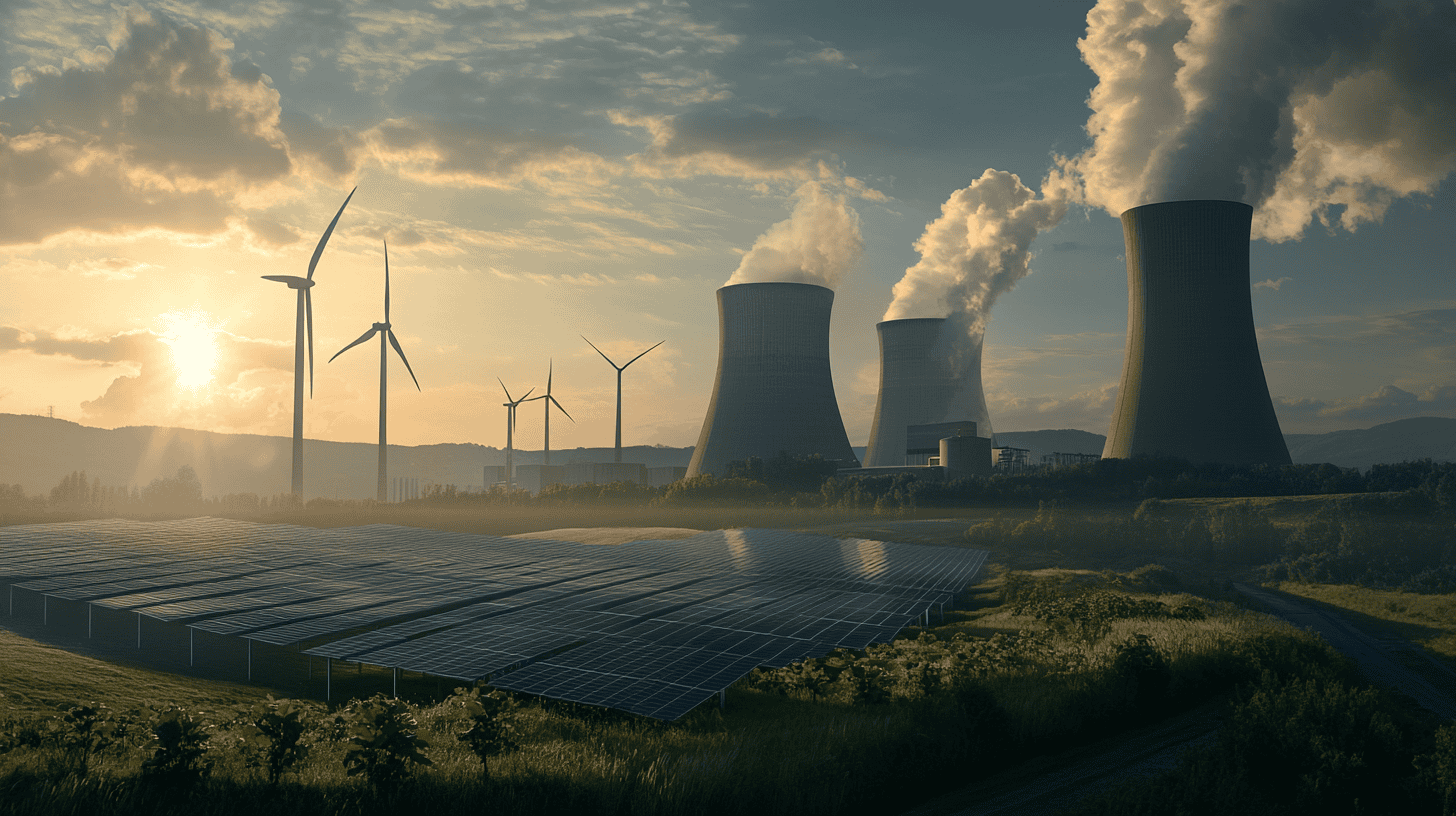
A new “nuisance” of the energy transition is currently doing the rounds on social media: according to the Federal Network Agency, companies should adapt to a “supply-oriented power supply”. In other words: if there is enough renewable electricity, it will be produced, if not, employees can stay at home. Of course, the aim is to control this through pricing. In other words, when there is little energy available (because there is a lack of sun and wind), the price of electricity goes through the roof.
This is no joke
What sounds like a bad joke is actually a German reality. After business representatives complained bitterly, the Ministry of Economic Affairs rowed back and had a spokesperson explain that these were “considerations of the Federal Network Agency that were put up for discussion, not plans of the minister.” Once again, a “test balloon”.
Energy – the fuel for prosperity
Do you know of a country that has increased or maintained its prosperity with less or drastically reduced energy consumption? Let’s leave that aside and just take a quick look at the chart.

The “International Journal of Sustainable Energy” recently published a reflection by the Norwegian scientist Prof. Jan Emblemsvåg at the University of Technology and Natural Sciences, Trondheim (NTNU): “What if Germany had invested in nuclear power? A comparison between the German energy policy the last 20 years and an alternative policy of investing in nuclear power”.
Emblemsvåg attempts the difficult calculation of an alternative scenario. Namely, what would have been the benefit for the climate and the energy supply if Germany had not shut down its nuclear power plants and even built new ones? He compared the costs of the “energy turnaround” with the costs that would have been incurred for constructing and maintaining nuclear power plants based on current knowledge.
Between 2002 and 2022 (the period under review), actual greenhouse gas emissions in Germany were reduced by -25%. By triangulating the available sources of information, Emblemsvåg estimates the total nominal expenditure for this reduction at 387 billion euros, with the associated subsidies amounting to a further 310 billion euros, bringing the total nominal expenditure for the energy transition to around 696 billion euros.
Alternative nuclear power
As an alternative, Germany could have retained its existing nuclear power in 2002 and, according to Emblemsvåg, invested in new nuclear power capacities. The analysis of these two alternatives shows that Germany could have easily achieved its climate gas emissions target by reducing emissions by 73% by 2022 in addition to the levels already achieved, while at the same time halving expenditure compared to the energy transition.
His conclusion: Germany should, therefore, have pursued an energy policy based on the retention and expansion of nuclear energy.
Political prerequisites
Of course, the author of this analysis has realized that the “energy turnaround” was primarily based on ideological considerations. Moreover, it is a typical “shoulda, coulda, woulda” scenario. The train has left the station because the time horizon is now different. In plain language: 20 years of blatant misguided development.
It is piquant that Jan Emblemsvåg does not make any forecasts regarding an alternative electricity price development. Nevertheless, he quantifies the benefits of this alternative electricity policy as follows: “All in all, the nuclear policy, including keeping the existing NPPs in operation in 2002, would have required expenditure of EUR 364 billion, i.e. EUR 332 billion less than the energy transition.”
The dark spots on the white energy transition vest
He also points out a fact often neglected by the advocates of renewable energy generation: the problem of hazardous waste. “By 2050, 43 million tons of rotor blade waste [from wind turbines] are expected worldwide (Liu and Barlow 2017), and recycling is minimal (Martin 2020). A further 78 million tons of solar panels are expected worldwide by 2050 (IRENA 2016).”
Emblemsvåg continues: “The energy transition has also performed poorly in terms of energy security, as it relies on gas-fired power plants as balancing and reserve energy, as the war in Ukraine has shown. The energy crisis has cost the Germans EUR 1,500 billion (Woodard et al. 2023), which would have been avoided if Germany had not been dependent on gas imports from Russia.”
Which brings us back to the beginning.
Everything is connected to everything
The problem is that “everything is connected to everything”. The alternative would almost certainly have ensured that the price of industrial electricity (due to oversupply) would have fallen in regions so that an exodus of industry, as currently observed in Germany, would never have taken place. In addition, the dependence (see above) on Russian gas would never have existed. Furthermore, coal-fired power generation would have been phased out many years ago, just like in France, where coal is virtually non-existent.

Last but not least, the transport transition towards vehicle electrification and the switch to heat pumps in private households would ultimately have become a no-brainer thanks to moderate electricity prices, as is the case in Nordic countries such as Norway. Germany would have faced golden times in terms of climate technology and employment.
The entire analysis can be viewed here.

